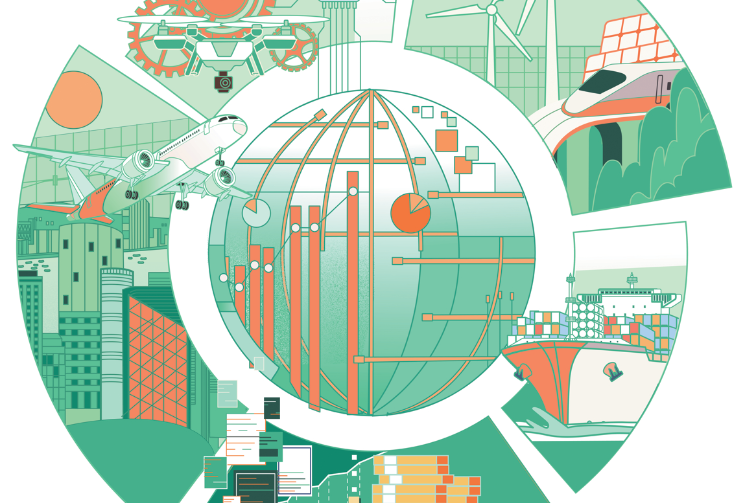China proposes a global package to improve the planet's health


Hosted by the United States, the Virtual Climate Leadership Summit was the first major international gathering of leaders from the world's leading countries in 2021, a platform for critical proposals and statements. The speech at the virtual summit of President Xi Jinping became one of the most constructive and meaningful in creating the ecology of the future on the planet.
In his speech, Xi stressed that one of the most important conditions for cooperation is the fact that countries must fulfill their promises to combat climate change instead of breaking their vows. And this was not said by chance.
It is not the first time that the world community is faced with the fact that some of the major political players on the planet with large-scale commitments to reduce CO2 at some point begin to ignore global climate change strategies, and often completely renege on their commitments. Such an unbalanced policy is undoubtedly dangerous for the future ecology of the planet and humanity must somehow protect itself from such excesses, when the irresponsible actions of one large carbon producer at once cancel out the positive contribution to reducing emissions of other parties to the agreement. And Xi understands this very well.
“We need to work on the basis of international law, follow the principle of equality and justice, and focus on effective action,” Xi said, urging countries to support a UN-centered international system.
However, he noted that China welcomes the United States' return to multilateral climate change management. With this statement, he emphasized that Beijing is determined to cooperate with Washington, and not to enmity. Because the joint cooperation of the two large countries on the climate issue would bring more benefits to humanity.
The forward-thinking approach of China's leader is visible in the way he carefully scrutinizes and proposes mechanisms to successfully implement the challenge to change the emissions landscape. A rocket will not take off if there is no launch pad and engines, which means that for the successful implementation of plans, the personal interest of each inhabitant of the planet is needed. And this is possible if every inhabitant of the Earth is not burdened with numerous social problems, which limits the possibilities of his actions and human resources. In this sense, Xi notes, we need to look for ways to protect the environment, grow the economy, create jobs and eradicate poverty at the same time, in order to ensure social equity and justice in the transition to a green environment and increase people's feelings of happiness and security.
In the matter of improving the climate, one can act only by common, joint efforts, otherwise this work is useless. Continuing this thought, Xi offers a clear strategy for its implementation - developed countries must make concrete efforts to help developing countries cope with climate change. The desire of many countries of the world to distance themselves from the problems of other neighboring countries and focus on their own, as, for example, the global pandemic has well shown the example of the EU countries, where disunity reached the most extreme forms, requires a different approach - joint and constructive. He called on developed countries to refrain from creating green trade barriers to help developing countries accelerate their transition to green and low-carbon development. In this sense, the same China demonstrates successful lessons of cooperation to Western countries, when, in the midst of a pandemic in 2020, it actively helped European countries to fight the coronavirus by sending medical supplies and equipment to a number of European countries, while EU partners refused to help their neighbors.
China will continue to prioritize environmental conservation and follow the path of green and low-carbon development. As Xi noted, China needs "extremely hard work" to meet its commitments to move from peak carbon emissions to carbon neutrality. But this will take a much shorter period of time than what many developed countries might need.
This once again demonstrates the high responsibility China takes in its responsibilities to reduce greenhouse emissions. And if we consider that China's share in greenhouse gas emissions until recently amounted to slightly less than one third of all global emissions, one can imagine how much China is doing in order not only to achieve, but also to exceed its obligations to create the ecology of the future. It is indeed difficult to achieve this, but China, as we can see, agrees to go to any costs and expenses.
In particular, according to Xi, China will monitor and gradually reduce coal consumption in the next decade. China intends to strictly control projects for the generation of electricity from coal, limit the growth of coal consumption during 2021-2025, and during the 15th Five-Year Plan (2026-2030), China intends to gradually reduce coal consumption.
China's strategies don't end there. Moreover, they start sooner. One of Beijing's most important contributions to curbing the absorption of global greenhouse gas emissions is planting trees on a truly gigantic scale that only a country like China can afford. How far tree planting can affect the absorption of harmful CO 2 - scientists from many countries argued with each other for a long time, until they started specific research on the work in this area, which is already being carried out by China.
Thus, after making a large-scale review of everything China has done in recent years and voicing all of China's plans and proposals to save the environment of the future, Xi announced China's main "green" strategy. Namely, he reaffirmed the country's commitment to the previously announced goals of reaching a peak in carbon emissions by 2030 and achieving carbon neutrality by 2060, when the volume of carbon dioxide emissions in China will not exceed the volume of absorption. And these aspirations of China can hardly be overestimated - no other country in the world has set itself such clearly defined tasks, has not demonstrated such a high responsibility and level of obligations to the world community.
Seymur Mammadov is the director of the international expert club EurAsiaAz and editor-in-chief of Azerbaijan's news agency Vzglyad.az.
he opinions expressed here are those of the writer and do not necessarily represent the views of China Daily and China Daily website.
If you have a specific expertise and would like to contribute to China Daily, please contact us at opinion@chinadaily.com.cn, and comment@chinadaily.com.cn.


































